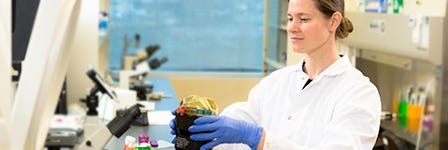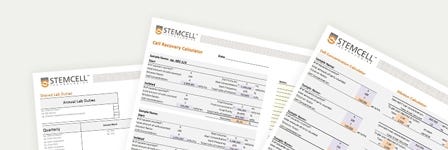How to Plan Experiments and Manage Your Time in the Lab

Managing multiple, concurrent research projects can be overwhelming. Without advanced planning and effective time management skills, you may find yourself missing meetings and deadlines, or spending too much time on minor tasks.
To help manage your workload and operate more efficiently in the lab, here are some tips on planning ahead, including tips submitted by your fellow scientists.
Make To-Do Lists
Making (and maintaining!) a to-do list on a regular basis is one of the most effective ways to increase your productivity in the lab. Take a few minutes at the end of each week to plan for the next one and identify the highest priority tasks. Similarly, at the end of each day, take a few minutes to review and adjust your plans for the following day. This approach will help give you the most productive start to each day and keep you on track to meet your goals.
Keep Task Duration in Mind
When planning ahead, consider task duration to ensure you give yourself enough time to complete your tasks and avoid underestimating your workload.
Rina from the University of Pennsylvania submitted this tip on time management:
In order to maximize efficiency during a busy time in the lab, I make sure to be organized and have a planner at hand. I assign an appropriate time requirement for each experiment and write out an hour-by-hour timeline of all of the experiments, as well as all of the specific details of the experiment to do throughout the day, so I can multitask and do not need to waste time thinking about what to do next.
Plan Experiments Early
Plan ahead for all experimental conditions, including controls, and think about all of the materials you will need. This will help your experiment run smoothly and reduce the risk that you'll have to re-run experiments in the future.
Mukul from the Ludwig Institute for Cancer Research suggests:
Always do a mock run of the experiment step by step in your mind a couple of days before doing the actual experiment. List down all reagents/machines you will need and [consider] if the design of the experiment makes sense. This will help you identify loopholes...and give you enough time to make corrective measures before launching the experiment.
Dedicate Time for Emails
Turn off email notifications and instead set specific times to read and reply to emails. Consider scheduling email time for when you naturally feel less productive, such as after lunch.
When it comes to dealing with distracting technology, Aaron from Duke-NUS Medical School had this to say:
Do not run from distracting technology, embrace it. Begin your day by going through your emails (dedicated time for emails) and then have a small break later in the day for dedicated Twitter. This stops you being distracted by email/twitter by giving it a dedicated time.
Don’t Forget to Schedule Breaks
Schedule short breaks to recharge your body and mind. Pro-Tip: Incubation periods are a great time for a quick break.
Marie from Case Western Reserve University suggests:
When you plan out your experiments for the week, also plan out time for exercise. A 2 hour incubation is enough time to take a 50 minute class plus a shower! It is stress relieving and feels good to take care of yourself. Never underestimate the power of self-care.
Nine Habits of a Highly Productive Researcher
Build these habits into your routine to become a more productive researcher. You'll make sure your research projects and your career keep moving forward.
Plan to Start Your Day Early
Lawrence from the University of Pittsburgh shared the benefits of starting your day early:
I have shifted my lab schedule slightly earlier from the normal 9-5 workday that everyone else follows by. "The early bird catches the worm." This means I have a head-start on experiments when the lab is less crowded, which means priority over equipment and machines that can get booked up later in the day when other lab members’ experiments culminate.
Keep Up with Publications
Schedule time (or use inactive time during experiments) to keep updated on key publications in your field. Subscribe to publication alerts (e.g. NCBI) or curation services (e.g. Science News) to save time finding papers relevant to your research.
Klara from the University of Lausanne shared the following tip on staying up to date with publications:
During 5-minute centrifugation steps, I like to go through my notification emails from PubMed that alert me weekly about new publications in my field of research. This is a great time window to scroll through the latest publications and save the most relevant ones on my desktop, so I can later come back and read them in detail!
Subscribe to Science News
Get curated lists of articles from fields you care about sent to your inbox.
Book Equipment Early
Always book time on shared equipment (e.g. flow cytometer) in advance. If possible, you may want to schedule some extra time in case your experiment does not go exactly as planned.
Check Your Reagents
Use your weekly or daily planning time to check that you have all the necessary reagents for your upcoming experiments. Check out our tips for reagent inventory management to make sure you never get stuck without critical reagents.
Halima from Cincinnati Children's Hospital suggests starting early:
Plan 2 weeks ahead. Sometimes reagents are on backorder, so have everything in stock and tested before the big experiment!





